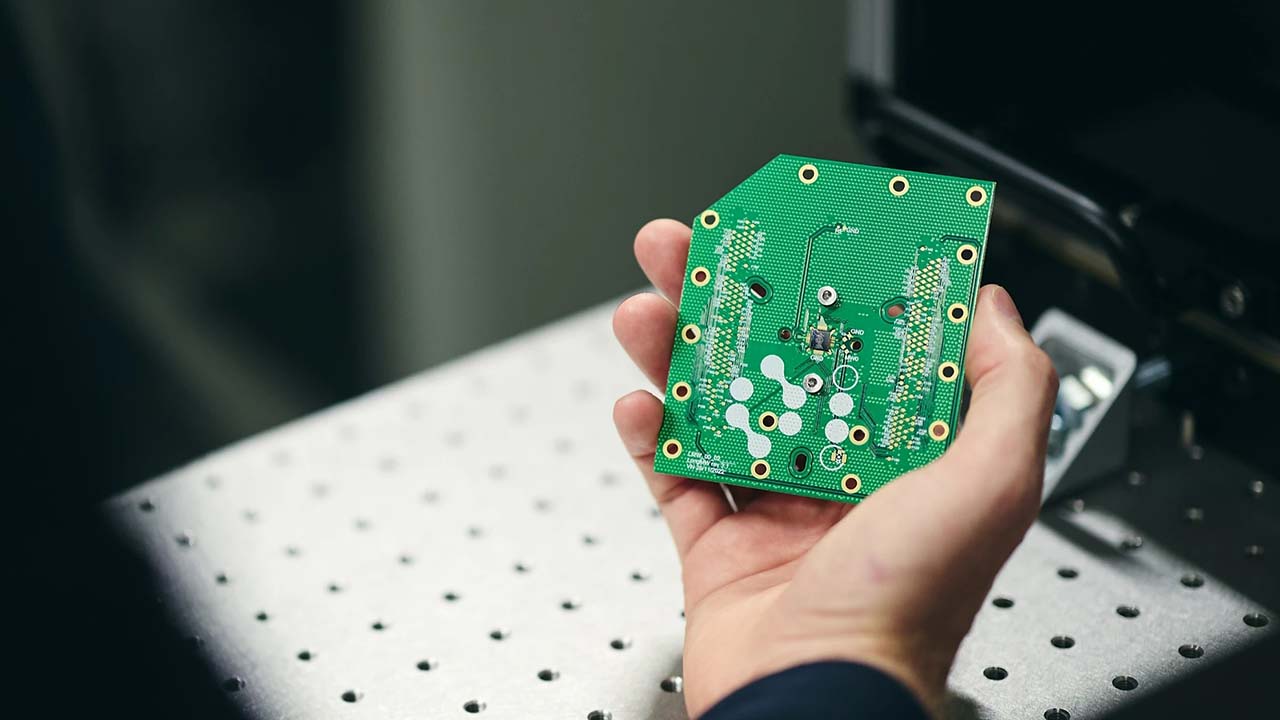
A new quantum computing chip has been developed that can be manufactured at scale in existing fabrication plants.
A company called Oxford Ionics has produced what it claims to be the highest performing quantum computing chip in the world. This would be news enough, but the chip in question can apparently be produced at scale within a standard fabrication plant.
Quantum computing has a problem in that it is incredibly difficult to implement high fidelity quantum gates as things are scaled up. As a proof of concept, the team at Oxford Ionics produced an experiment that could control up to 10 qubits, demonstrating low noise site selective single and two-qubit gates in a seven-zone ion trap.
The result was that the team achieved two-qubit gates with fidelities at the 99.97% level and single-qubit operations with 99.9992% fidelity.
The new system in question uses a quantum computing method called trapped ions. Regarded as one of the most reliable ways to construct a useful quantum computer, the trapped ion method controls the qubit state is controlled by lasers, which as you can imagine wouldn't be very practical in a mass produced chip.
Electronic Qubit Control System
Oxford Ionics developed an alternative way to control the qubit state that it calls the Electronic Qubit Control System. As with most things related to quantum computing where mere mortals are concerned, the language used isn't immediately accessible. The company described the new system in a published paper as follows, "Our architecture utilizes shared current-carrying traces and local tuning electrodes in a microfabricated chip to perform quantum gates with low noise and crosstalk regardless of device size."
In short, the company is using magnetic fields rather than lasers to control the qubits, and it's this that makes the system so compatible with existing chip fabrication plants. Further, with regards to performance, the company says that previous world records in quantum computing have been achieved with the use of error correction. In a press release, Oxford Ionics stated that its new chip achieved "over twice the performance, without needing error correction, using 10x fewer qubits."
Now that the process has been proven, the company's next aim is to produce a final scalable 256-qubit chip that can be manufactured in an existing fabrication plant. The scalability aspect is important, because it is claimed that a next generation of chips with thousands of qubits could be produced in much the same way, bringing the idea of practical quantum computing a significant step closer to reality.
tl;dr cheat sheet
- Oxford Ionics has developed a high-performing quantum computing chip that can be produced at scale
- The chip can control up to 10 qubits and achieved two-qubit gates with 99.97% fidelity and single-qubit operations with 99.9992% fidelity using trapped ions
- A new Electronic Qubit Control System uses magnetic fields instead of lasers to control qubits, making it compatible with existing chip fabrication plants
- The new chip achieved over twice the performance of previous world records in quantum computing, without error correction, using 10 times fewer qubits
- The next aim is to produce a scalable 256-qubit chip that can be manufactured in an existing fabrication plant, with the potential for future chips with thousands of qubits
Tags: Technology Quantum Computing


Comments